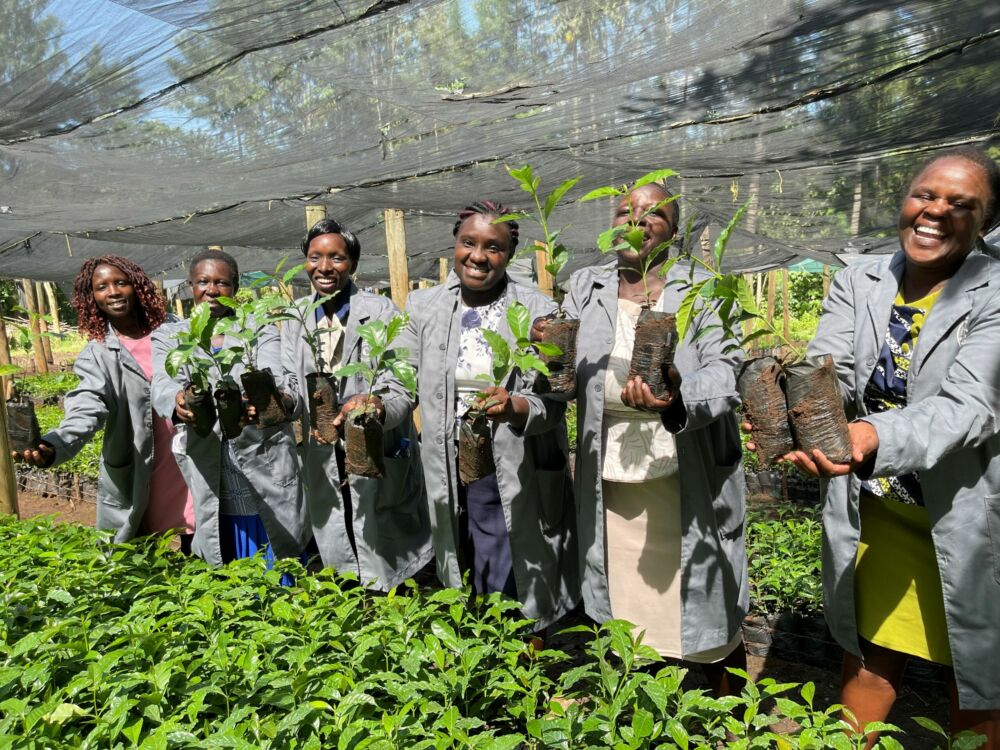Women at the forefront of fighting climate change
Date
May 20, 2022
Kipkellion Women (Kenya) displaying their coffee tree seedlings. Photo Catherine Waking’a
The theme for this year’s International Women’s Day is “Gender equality today for a sustainable tomorrow’’ under the campaign theme #BreaktheBias. The focus is on recognizing the contributions of women and girls around the world, who are leading the charge on climate change adaptation, mitigation, and response, to build a more sustainable future for all.
Climate change represents the most complex challenge of our time
Women, girls, men, and boys are affected differently by climate change and disasters, with many women and girls experiencing greater risks, burdens and impacts. Patriarchal societal norms perceive women as primary caregivers charged with household responsibilities normally under-rated, unpaid, underpaid or invisible. They are also under-represented in decision-making processes and thus, their needs and concerns are not often adequately integrated into development programming and policy, including those related to climate change.
Despite the disproportionate gender-based challenges, women and girls are effective and powerful leaders and change-makers for climate adaptation and mitigation. Women have proven to be leading the way towards more equitable and sustainable solutions to climate change.
Their innovations and expertise have transformed lives and livelihoods and increased climate resilience and overall well-being. They have the knowledge and understanding of what is needed to adapt to changing environmental conditions and to come up with practical solutions. But they are still a largely untapped resource.
Women need to be put in the centre of climate change
It is important to clearly understand the nexus between gender and climate change with an overarching need to address the underlying inequalities between men and women in climate change adaptation and disaster risk reduction. As we aim to break the biases and adequately address the gender-skewed climate change and disaster risk effects, we need to put women and girls at the Centre of climate change responses and pay attention to the challenges and opportunities that climate change presents struggle for gender equality.
Women need to be provided with equal space as men to participate in climate change decision-making and action at all levels. Concerted efforts are required to strengthen adaptation by ensuring women’s access, control, and ownership of resources such as land, livestock, property and income, opportunities, credit, information, training and labor-saving technologies. There is also the need to mainstream gender into the country’s legal frameworks and policies on disasters and climate change, not forgetting the implementation of the Paris Agreement of 2015 on climate change.
Let us recognize women and young girls across the continent who are making great strides in breaking biases, particularly those regarding climate change’s adverse impact. #BreaktheBias.